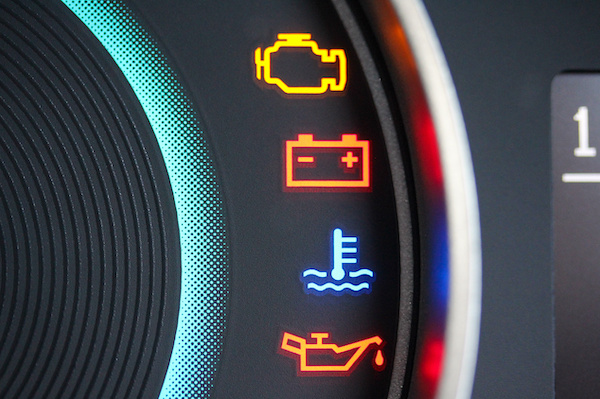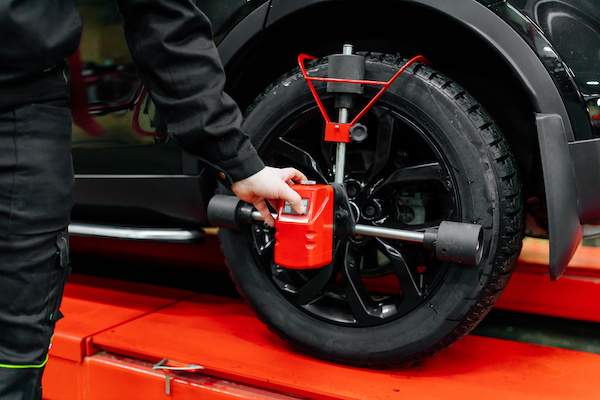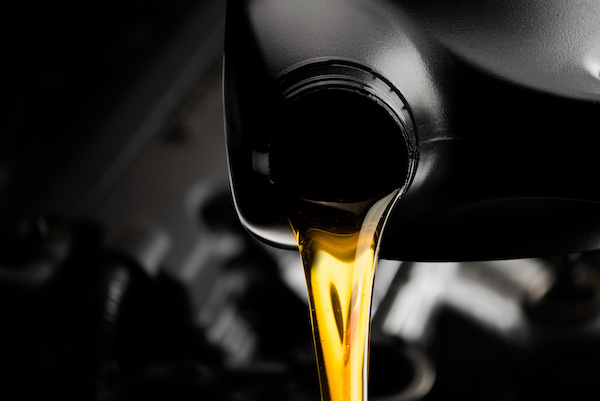Posted on 7/29/2023

Your car's dashboard is full of warning lights to indicate issues with your vehicle. Knowing what they mean and how to address them can be the difference between a quick fix and major repair work. In this post, we'll go over the most common warning lights you should know about, what they mean, and how you should respond. Engine Warning Light The engine warning light is one of the most important lights to be aware of. This light can come in a variety of colors such as red, yellow, or amber, and indicates that there may be an issue with your engine. If you see this light turn on, it's best to have your vehicle looked at by a professional mechanic as soon as possible. Brake Warning Light Another important light to be aware of is the brake warning light. This may come in an orange or red color and it indicates that your brakes have experienced some type of problem. If this light turns on, you should ... read more
Posted on 6/30/2023

Your car's suspension system is crucial to its performance. The suspension ensures that your tires remain on the road and wheels align. The car's suspension determines how smooth your ride is. All the suspension parts need to function optimally for the smoothest ride. The following are tips for how to avoid common suspension problems. Wheel Alignment If you notice your car pulling to one side, it is a sign of suspension problems. The suspension affects the wheel's alignment and vice-versa. Therefore, to avoid common suspension issues, you should ensure your car wheels are aligned. If the wheels align, but the car still pulls to the side, then it is an issue with the suspension system. Therefore, always ensure your vehicle's wheels are aligned to avoid suspension problems. Avoid Bumps And Dips A surefire way to tell if your car is having suspension issues is a bumpy ride. You will typically feel every bump and dip on the road. Therefore, to avoid regular suspensio ... read more
Posted on 5/31/2023

Summer is here, and that means more road trips and outdoor adventures for Portland's many motorists. However, the warmer weather also brings some driving hazards that you should be aware of. As a responsible driver, it is crucial to know what these dangers are and how to avoid them. Heatstroke: When the temperature rises, your car's interior can quickly become dangerously hot. Make sure to park in a shaded area and use a sunshade to keep the temperature down. Sun glare: The summer sun can be blinding, making it difficult to see the road. Please stash a pair of sunglasses in your vehicle and use your sun visor to reduce glare. Furthermore, keep your windshield clean to ensure maximum clarity. Tire blowouts: The heat can cause your tires to expand, leading to blowouts. Please remember to check your tire pressure regularly and ensure your tires are properly inflated. Construc ... read more
Posted on 4/27/2023
.jpeg)
A clutch is an integral component of a manual transmission system in a vehicle. It is necessary for transmitting power from the engine to the transmission, allowing the vehicle to move in the right direction. But what exactly is clutch, and how do you know if it's time for a replacement? If you want the answers to these questions, read along. What Is a Clutch? Simply put, a clutch is a mechanical device that connects and disconnects the engine from the transmission. It allows the engine to spin freely when the vehicle is stopped or idling, and it engages when you shift gears to transfer power to the wheels. Without a clutch, you would not be able to drive a manual transmission car. Do All Cars Have Them? No, not all cars have a clutch. Automatic transmissions, for example, use a torque converter instead of a clutch to connect the engine to the transmission. However, most cars with manual transmissions do have a clutch. How to Tell If a Clutch Is Going Bad There are several s ... read more
Posted on 3/29/2023

Oil changes are an essential part of vehicle maintenance, and they help to ensure the longevity of your engine. However, if you don't drive your car often, you may be wondering whether or not you still need to get oil changes. The answer is yes, and in this blog post, we'll explain why. The Purpose of Oil Changes Firstly, it's important to understand the purpose of oil changes. Engine oil is the lifeblood of your vehicle's engine, and it serves several critical functions, including: Lubrication: Oil lubricates the engine's moving parts, reducing friction and wear. Cooling: Oil helps to dissipate heat generated by the engine. Cleaning: Oil helps to clean the engine by removing dirt, debris, and other contaminants. Over time, engine oil breaks down and loses its ability to perform these functions effectively. When this happens, it's time for an oil change. Why Is It Important to Get Regular Oil Changes? R ... read more